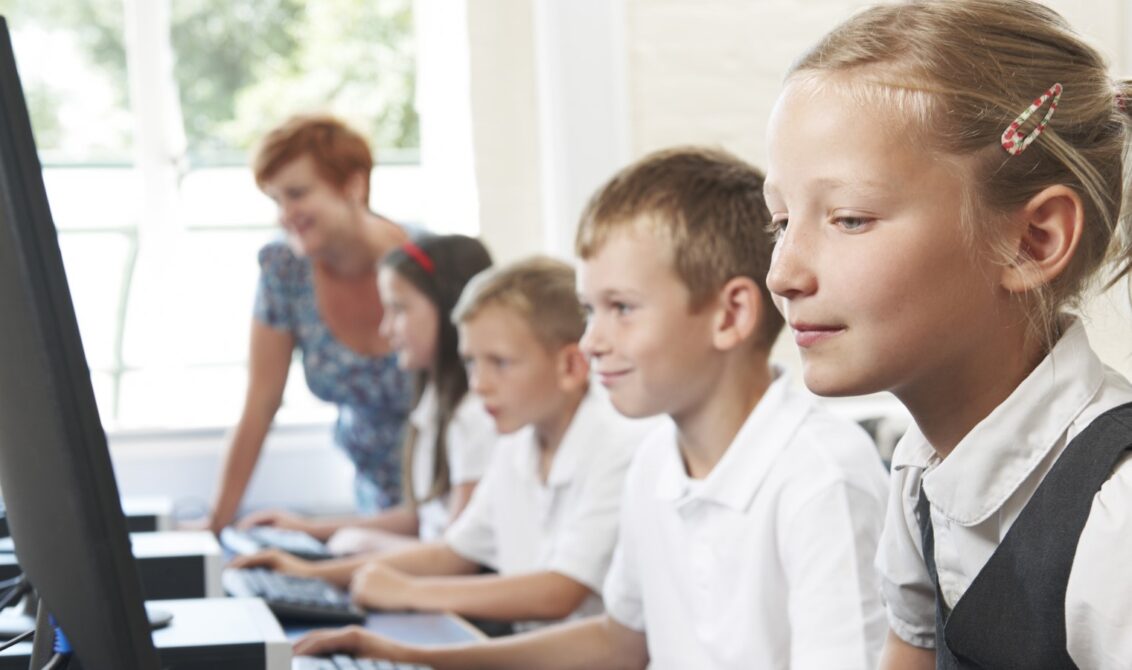
In this article, Kai Vacher, Principal of British School Muscat in Oman explains how in early 2020, his school developed an idea that at the time seemed novel, innovative and creative: delivering a whole curriculum through a mix of online and face-to-face teaching. Of course, within a few months, the whole world was doing likewise. But what British School Muscat created was not about overcoming a pandemic, but something more fundamental: about international schools and their staff using their skills to help broaden access to education across their host country using a blended approach to teaching and learning they called FlexEd.
FlexEd: necessity invents – blended learning overcomes physical distance and isolation
There are two ‘not-for-profit’ British Schools in the Sultanate of Oman: British School Muscat (BSM), is in the capital with 1,100 students aged 3-18; the other is in Salalah (BSS), over 1,000km away, on the wild southern coast. A world away from Muscat; Salalah is a beautiful part of the Arabian Peninsula and is, as yet, largely undeveloped. It has an important trading port, with a rapidly developing modern city. There are around 170 students here, with the primary school strong enough to support a pre-COVID 19 traditional educational model. The senior school has just 19 students in Years 7 to 9, six in Year 10 and very few above this – certainly not enough to justify a typical GCSE programme.
The Government Ministry wants to improve educational standards in Salalah, particularly at secondary level, and we at BSM were asked, politely but firmly, to help. On one hand, it was an exciting opportunity for BSM to create a partnership with BSS to fulfil the Ministry’s objective. On the other, there was at least one major hurdle. I flew down in late 2019 knowing that schooling so few students beyond Key Stage 3 would not be viable.
“What can you do for our children, sir?” was how I was greeted by parents. “They, and we, love this school, and we want to stay. Please help us!”
In my thirty years in education I have rarely had to tell a parent that their child no longer had a place at my school, and never due to the fact that my team couldn’t negotiate obstacles. Luckily Les Johnson, our Director of IT and a creative problem solver, was with me so we huddled down and devised a plan for flexible teaching to table with the parents. We needed to be sure our ideas would also be supported by our core teaching team in Muscat, so we made a few calls and were encouraged with the response. “We can do this”, “It’ll be an exciting project”, “The students and the country will benefit” were just some of the initial reactions.
For students preparing for International GCSEs
We introduced the concept, and the response from parents was immediately positive. After discussion and buy-in, we have named the programme FlexEd, and it is targeted for students aged 13-16 years preparing for International GCSEs. We offer:
- Face to face schooling five days a week in Salalah for English and Maths International GCSE, Music and PE;
- International GCSE Biology, Chemistry, Physics and Computing using an award winning personalised learning platform from ‘Century’ with regular timetabled tutoring from BSM’s world class team of UK qualified science teachers;
- Next year all FlexEd students will be able to participate in BSM’s enrichment programme including the World Scholar’s Cup, Model United Nations and the Duke of Edinburgh’s International Award;
- A Google Chromebook laptop, software and unlimited storage for school and home use is included free of charge for every FlexEd student.
This solution blends direct teaching, online learning and video conferencing with specialist teachers, and can be offered at an affordable price point. It has extended the skill set for our teachers in both Muscat and Salalah, and we have added support personnel for students in Salalah to smooth the way. The Government Ministry quickly approved the initiative, adding the necessary official credibility.
What do our parents, students and teachers think?
We undertook a parental survey at the end of 2020, and invited soundings from the teachers involved to add their thoughts and ideas for future improvements.
- 100% of parents either strongly agreed or agreed that their child was making good progress with FlexEd and would recommend the programme to other parents and friends.
- 100% of parents also valued the importance of face-to-face learning within the FlexEd model. Traditional teaching is clearly still so important – the personal touch and face to face connection between students and their teachers means a lot.
- 100% of students strongly agreed that the new programme was just what they needed, confirming their enjoyment of both the face-to-face and online interactive sessions.
We’ve identified the need to make sure all students progress within similar timescales and also that sufficient guidance must be given to maximise the effectiveness of ‘self-study’ and the assessment of progress. We also know that the organisation and punctuality of the online lessons is important, providing both pace and progress.
Jenny Maslen, Head of BSS, adds “Once the programme content and timing had been fine-tuned, we have seen both students and teachers enjoy the FlexEd initiative with all realising the significant potential it has. We plan therefore to extend the programme up to year 11 from September 2021 and also to add French.”
The future for FlexEd
As educators, we know that FlexEd cannot replace the campus life, but it can add to it and is sustainable; and for some, it is the route to higher achievement. It has fired the imagination of our school community to plan ‘FlexEd 2.0’ and beyond. There’s some easily identifiable immediate add-ons.
Forced school closures due to adverse weather conditions such as snow in the UK, or rain here in Oman, no longer need to result in a loss of learning. Once the students and teachers are at home, education can continue online across the whole curriculum.
Furthermore, with classrooms set up for blended learning to combat the pandemic, those students who are temporarily unable to come to school, but can learn from home, will be able to do so. The teacher will switch on the camera and the home-based student will be able to access the class.
There’s another possibility too – you can check out but don’t need to leave. Those students who have spent some years at our school making friends and building learning experiences with our teachers, but find themselves moving away due to their parents relocating out of Oman, have the option to continue with us. We have three students in Year 11 in Muscat wanting this now and more requesting this option for next year. We say let’s do it.
We believe this model of teaching can be used elsewhere, for us in Oman and in other countries too, with the enviable benefit of extending the reach of quality British education to an ever growing number of young people. It is a win-win.
Sign up to receive our blog updates
Like what you read and want to receive more articles like this direct to your inbox? Subscribe to our blog and we’ll send you a fortnightly digest of the blog posts you may have missed, plus links to free resources to support your teaching and learning.

